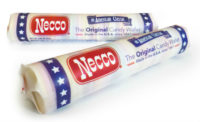
The Supreme Court of Illinois has granted the state’s motion for a stay of enforcement on the decision inWirtz v. Quinn, where the Illinois First District Appellate Court struck down Illinois Public Act 96-34. The Act would have increased the tax on candy and other merchandise, says officials with Ryan, a leading professional tax services firm, specializing in the recovery of transaction taxes, based in Dallas, Texas.
Ryan announced that as of Feb. 1, 2011 no action will be taken in the case ofWirtz v Quinn, because the Act violates the single subject rule of the Illinois Constitution.
The single subject rule is designed to prevent the passage of bad legislation bundled with good legislation, says Jim Kranjc, a principal with Ryan. In Illinois this tactic is known as logrolling. “The assumption is that the bad legislation would not pass or muster enough votes, so they try to bundle it up with legislation that would pass,” he explains.
In this specific case, what started out as a five-page bill turned into 280 pages regarding everything from not only increasing the sales tax on candy and beverages, but also privatizing the lottery system in Illinois, proposing new requirements on state capital projects and a slew of other legislation.
According to Kranjc, the state tried to argue that all of these additional requirements had to deal with revenue in some form or fashion, so that logically everything was tied together through revenue.
“[Ultimately, though,] the court said that is way too much of a stretch because we are looking at broad categories that don’t have a logical connection and the court said the argument was unconvincing,” says Kranjc.
The Act would have affected the sales tax rate in Illinois. The tax rate, which went into effect on Sept. 1, 2009, covered a variety of different items including soft drinks, grooming, hygiene products and candy. All of these products are now subject to the higher general merchandise state rate of 6.25% as opposed to the lower 1% rate imposed on food and medicine.
The Illinois Department of Revenue has told retailers to continue imposing tax as they have since Sept. 2009 until the Supreme Court of Illinois takes further action.
-G.W.




